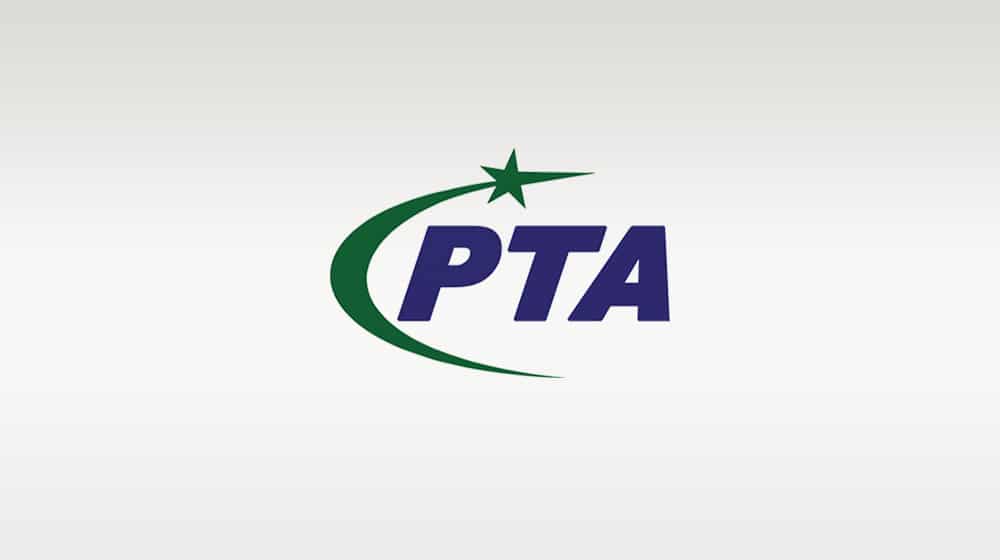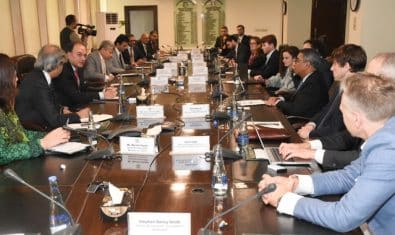The Pakistan Telecommunication Authority (PTA) has clarified its standpoint on the regulatory issues raised by ProPakistani in a recent article.
The Authority has given its stance on issues such as spectrum auction, the launch of 5G, enforcement of licenses, litigation, and economic challenges being faced by telecom companies.
Spectrum Auction
According to PTA, it conducts spectrum auction as per Policy Directives issued by the Government of Pakistan from time to time. Spectrum auction in Pakistan is conducted once in two to three years and a comprehensive process of 8 to 10 months is followed through.
In the last couple of years, PTA has conducted two spectrum auctions. The 2021 spectrum auction fetched $279 million (Pakistan) and $30.3 million (AJ&K and GB). Out of the total 12.8 MHz spectrum offered to CMOs. Ufone won 9 MHz of spectrum in the 1800 MHz band being the prime band for 4G services, and 70 percent of 1800 MHz spectrum was disposed of in Spectrum Auction 2021.
The federal government also offered 15 x MHz paired spectrum in the 2100 MHz band however, no appetite was shown by any mobile operators in this band. Alongside this, PTA has facilitated the licensing process by issuing LDI licenses in the last four years to generate competition among service providers for better services.
5G launch
The government is preparing for the successful launch of 5G in collaboration with relevant stakeholders and spectrum in various bands with the maximum possible spectrum bandwidth already been made available for 5G usage.
All cellular mobile operators have already conducted tests and trials under the 5G Policy Guidelines and framework. Moreover, as mandated under telecom policy 2015 and to foster industry growth & EODB in line with best regional and international best practices, PTA has formulated and undertaken industry consultation with all stakeholders for regulatory instruments including Infrastructure-Sharing Framework, Spectrum Re-farming Framework, Spectrum Sharing, and National Roaming. The Authority approved Infrastructure Sharing Framework which has already been submitted to MoITT for approval.
There are, however, a few challenges associated with the 5G launch in Pakistan which include low OFC penetration, tower density, increased inflation, low ARPU, increased OPEX such as high prices of fuel and electricity, and high taxation which are important before a comprehensive 5G Policy issuance by Government of Pakistan. PTA is playing an active role in the commercial launch of 5G services in Pakistan, and policy directions from the government are awaited. Therefore, reporting that there is no serious headway in this direction is unfair.
Enforcement
The Authority has the mandate to monitor and enforce licenses under the Act in accordance with license terms and conditions. The Authority, with a view to ensure compliance to license terms and conditions and in response to receipt of consumer complaints, carries out surveys to assess the performance of licensees against Quality of Service KPIs. After the regular surveys, licensees are provided the opportunity to remove QoS shortfalls, if any. Nevertheless, in cases where the contraventions were not remedied, legal proceedings are initiated under section 23 of the Act.
PTA clarified that issuance of show cause notices, covered under Section 23 of the Act, is a part of the regulatory process that ensures compliance in terms of licenses and ensures QoS is maintained specifically with reference to consumer complaints.
The increased number of show causes during the period reported is a testament to the fact that strict monitoring and compliance were ensured by the regulator. To enhance its monitoring capability and conduct surveys simultaneously, in different parts of the country to ensure QoS, PTA not only procured new state-of-the-art Quality of Service Monitoring & Benchmarking Tools but also acquired the same from mobile operators.
Litigation
With regards to “highest litigation”, the Authority clarified that it performed its regulatory functions by enforcing applicable laws. The impression that litigation was highest during this period must be seen in the light of what regulatory actions were taken. Further, it is relevant to note that the period under reference may also be considered the highest in terms of disposal of court cases which is almost double the disposal rate of the previous authorities.
Economic challenges
Despite economic challenges amid inflationary pressures and currency devaluation, the sector has achieved record-high revenues of Rs. 694 billion in FY 2021-22. It is important to highlight that during the last four years, the sector’s revenue has increased by 30 percent and recorded CAGR of 6.5 percent, annual investment increased by 83 percent, mobile broadband data increased by 611 percent, broadband penetration increased by 26 percentage points and network (cell sites) increased by 25 percent. These encouraging telecom statistics during the last four years clearly show a progressive telecom sector due to an enabling regulatory environment and claiming that “industry revenue growth underperformed” is contrary to the facts.
As for ARPUs, they have improved to Rs. 232 in Jul-Sep 2022 from Rs. 219 in the corresponding quarter last year i.e. Jul-Sep 2021. The profitability and ARPU of telecom operators are important to meet the growing requirement of an investment of billions of dollars in telecom infrastructure, however, telecom companies are operating on low profitability and ARPU due to taxes on the sector and negative impacts of inflationary/ currency devaluation pressures on operating costs.
PTA is cognizant of this issue and is collaborating with operators to ensure a reasonable return on telecom investment while expanding telecom services in the country.
PTA has been following a de-regulated tariff regime and telecom operators are at liberty to revise/ increase their tariffs in Pakistan to meet the increasing cost of doing business and to address profitability issues.
However, tariffs for the dominant mobile operator i.e., Jazz are regulated with the aim to prevent any anti-competitive practices by the market leader. PTA is swiftly processing tariff proposals submitted by Jazz for seeking approval. Therefore “slow and insufficient approval of critical tariff proposals and further measures to micro-regulate tariffs” does not hold true.
Sale of SIMs
There have been no restrictions on the legitimate sale of SIMs by PTA during the period as reported in the article. Furthermore initiatives including the introduction of Multi Random Finger Biometric Verification System (MBVS) for secure SIMs issuance, the development of BVS Portal for Pattern Recognition to identify sale channels involved in the illegal issuance of SIMs, and up gradation of BVS Devices to Live Finger Detect (LFD) enabled devices, have been taken for ensuring legal SIM sale. Moreover, a proposal has been sent to the Ministry of Interior for making the illegal issuance of SIMs a cognizable and non-bailable offense in PECA 2016 in order to make the legislation more effective.
Further, PTA has leaped to an ‘Advanced’ level of 5th Generation (G5) regulator in the International Telecommunication Union’s 2022 regulators’ ranking. The Global System for Mobile Communications Association (GSMA) has rated Pakistan as an ‘emerging’ telecom market—a recognition that owes itself to multiple interventions. Policies and initiatives of the MoITT constitute the mainstay of PTA’s strengths as we stand committed to a conducive regulatory environment in the best interest of the country, people, and industry.






















